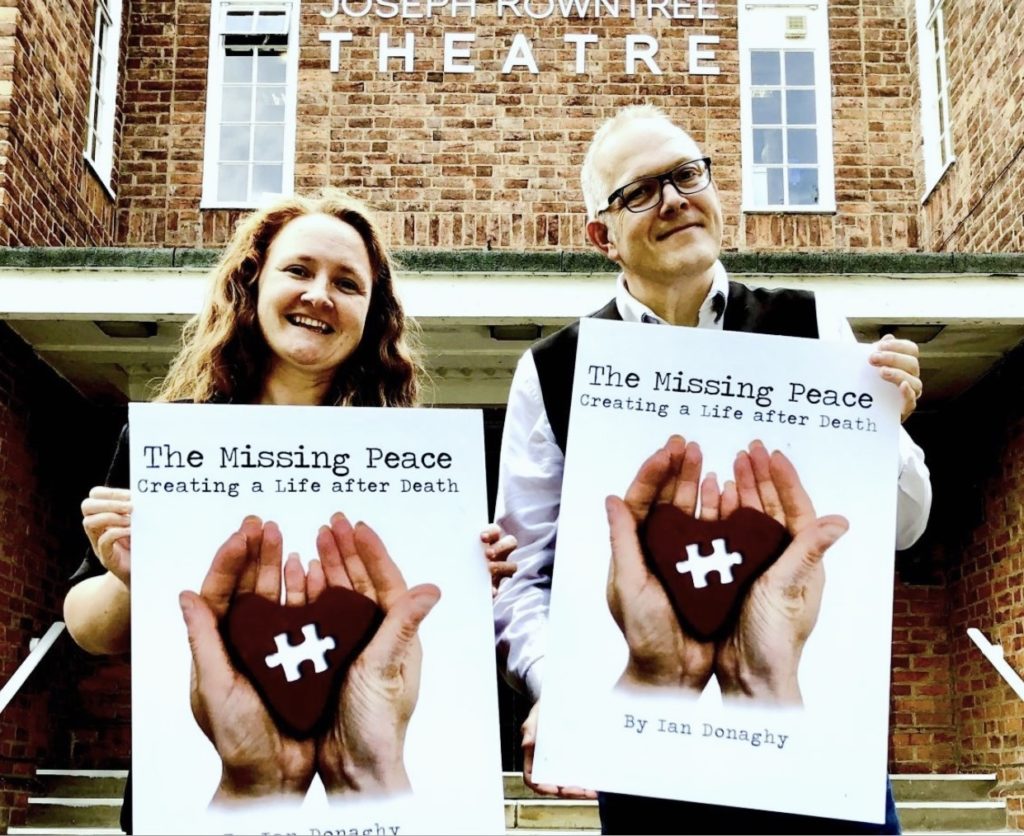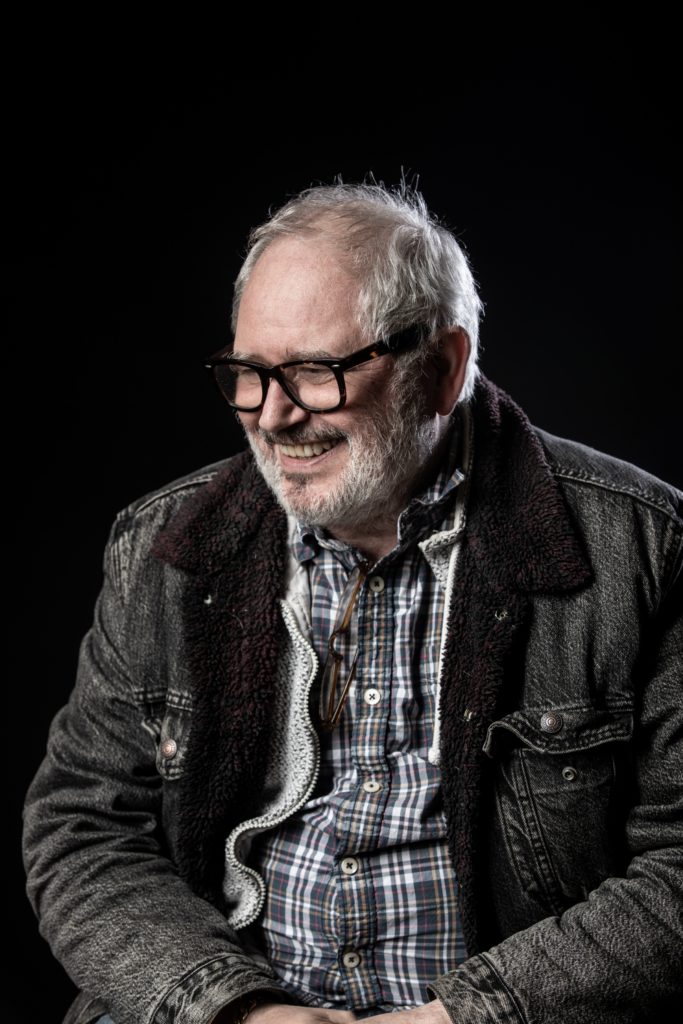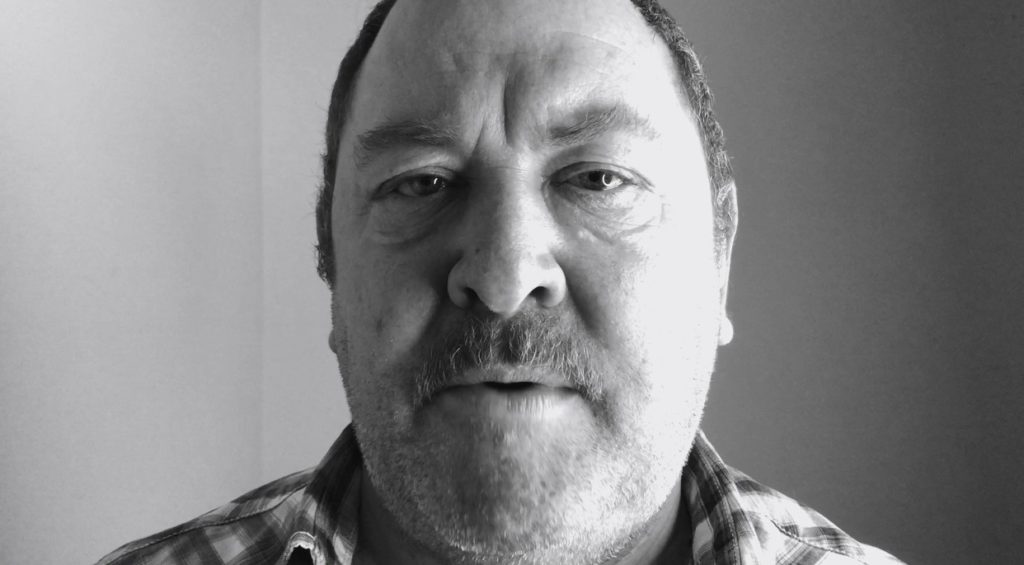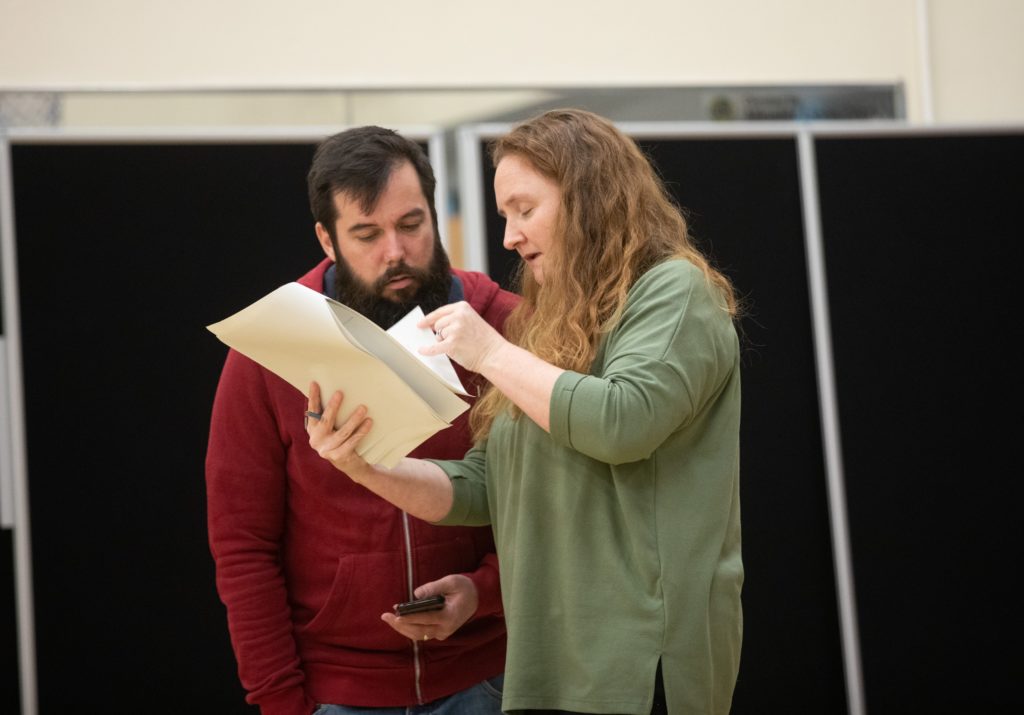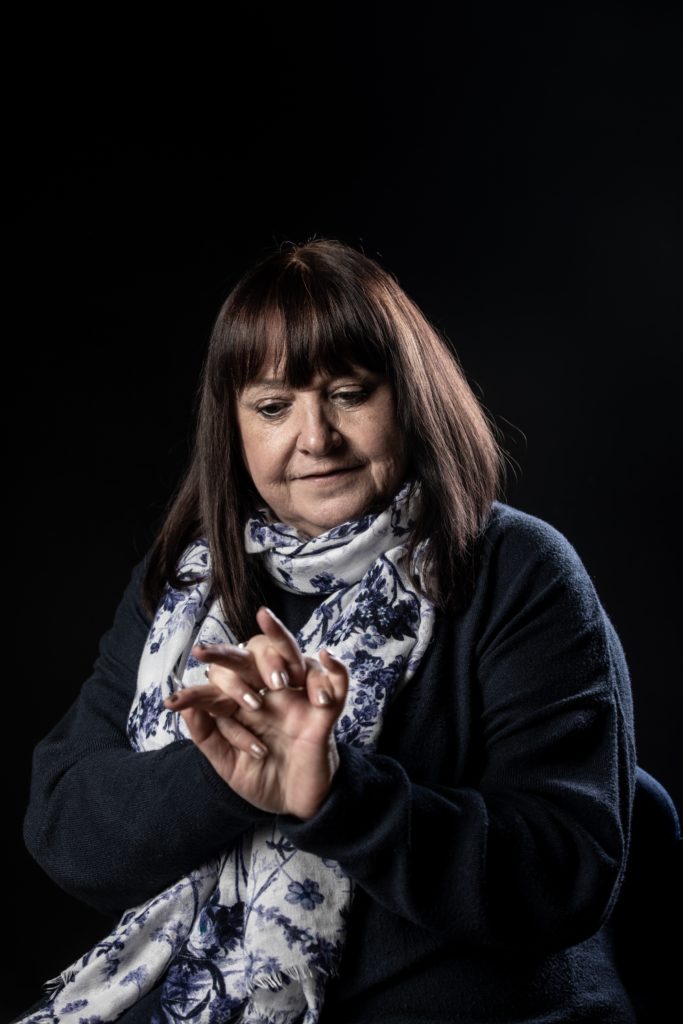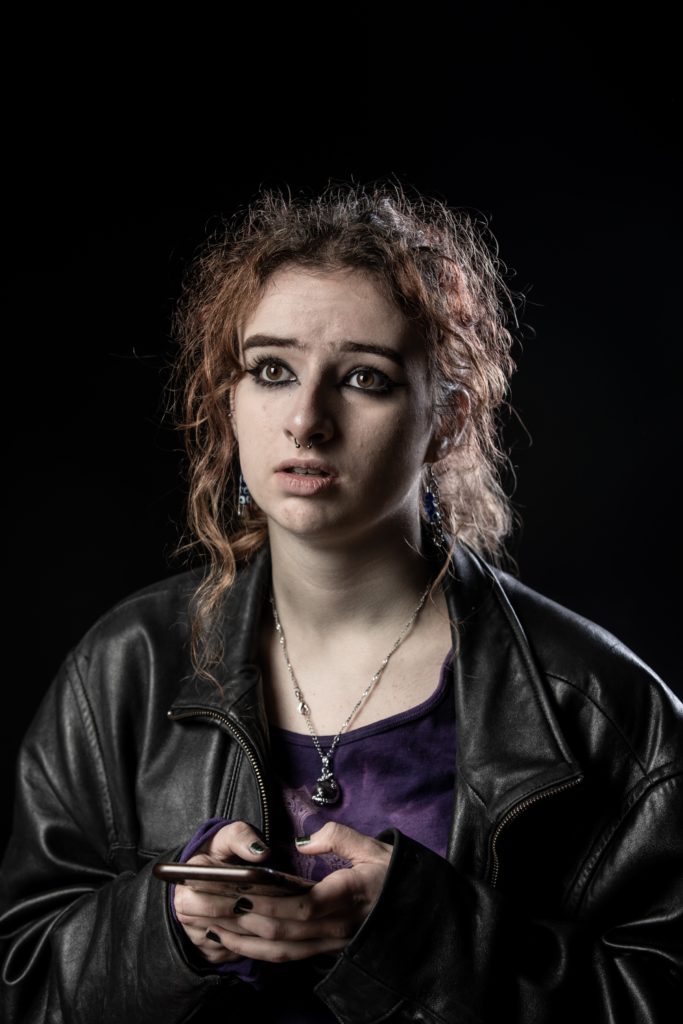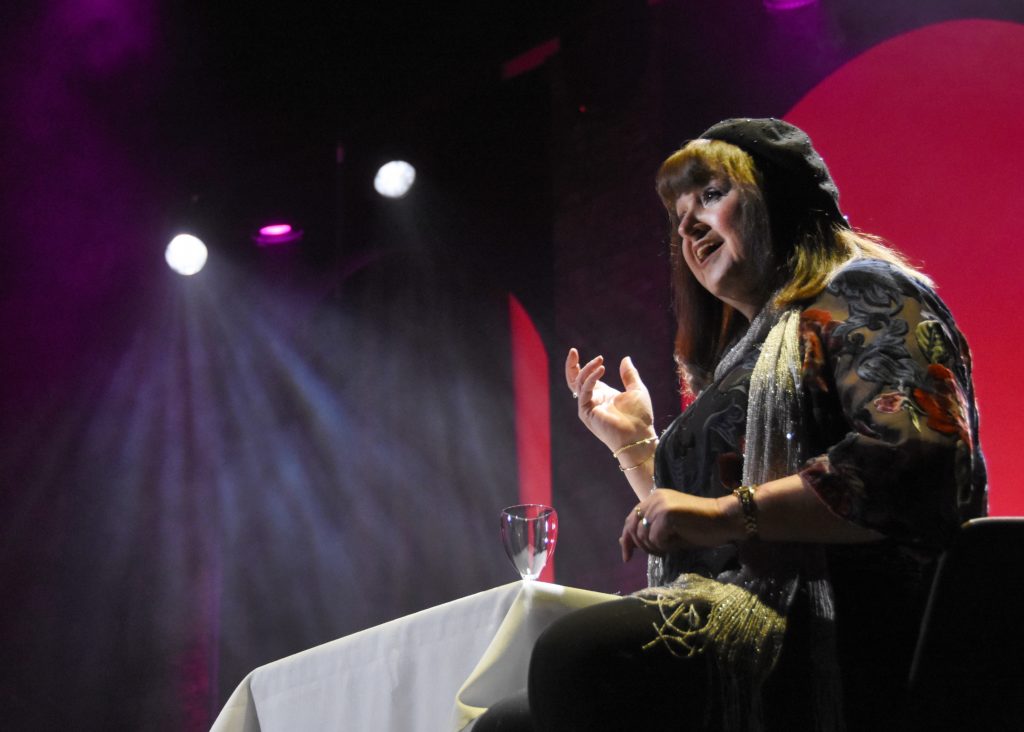
Rowntree Players in The Missing Peace, Joseph Rowntree Theatre, York, tonight, 7.30pm; tomorrow, 2.30pm and 7.30pm. Box office: 01904 501935 or at josephrowntreetheatre.co.uk.
AMERICAN writer, scientist, inventor, statesman, diplomat, printer, publisher and political philosopher Benjamin Franklin famously said: “In this world, nothing is certain except death and taxes.”
Yet talking about death remains a taboo subject (and who wants to discuss tax?), but Tow Law-born York all-rounder, teacher, party-band frontman, keynote conference speaker, filmmaker, charity event organiser and storyteller Big Ian Donaghy did just that in his second book, The Missing Peace.
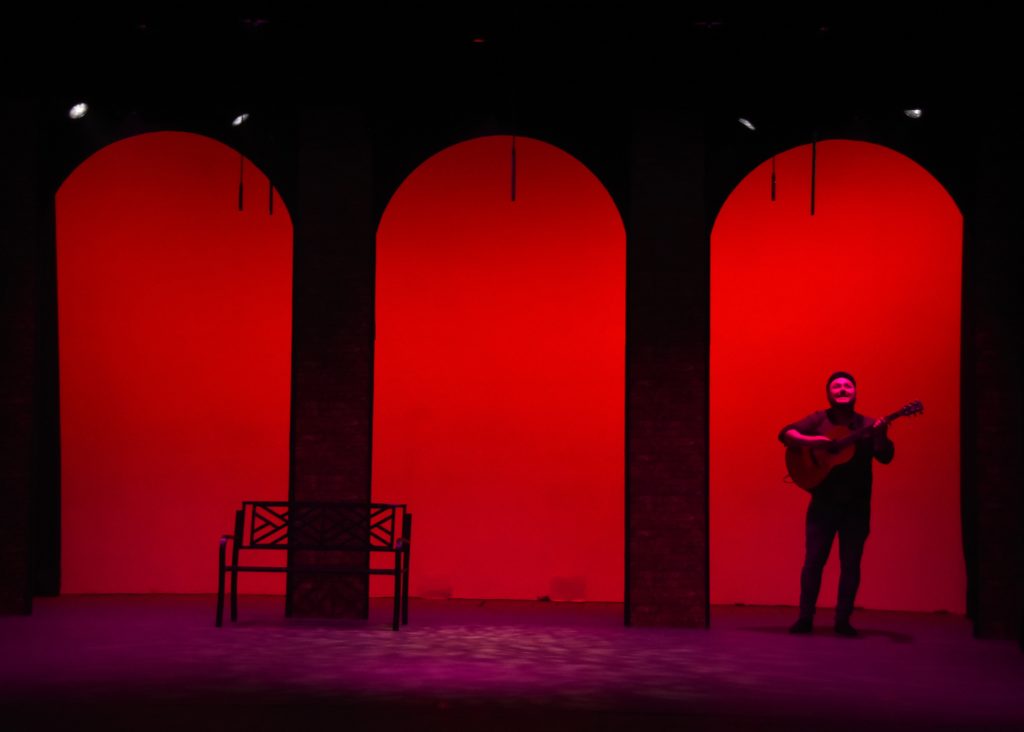
“It’s not about dying,” he clarifies. “It’s about living and celebrating life.” Actually, it is about death, coming to terms with death, life after death and, yes, talking about it. Death of partners, parents and pets alike. Siblings and soul mates. Stepping in as the replacement or being the loco in parentis.
Gemma McDonald, teacher and Rowntree Players pantomime favourite, read the book and immediately thought The Missing Peace could be turned from the written to the spoken word on stage in the form of One Play…15 Endings.
Working in tandem with Donaghy, she has adapted and directed the Players’ Talking Heads-style production, set at a busy York railway station, where Mark Addy, no less, is the station announcer in the pre-recorded narrator’s role.
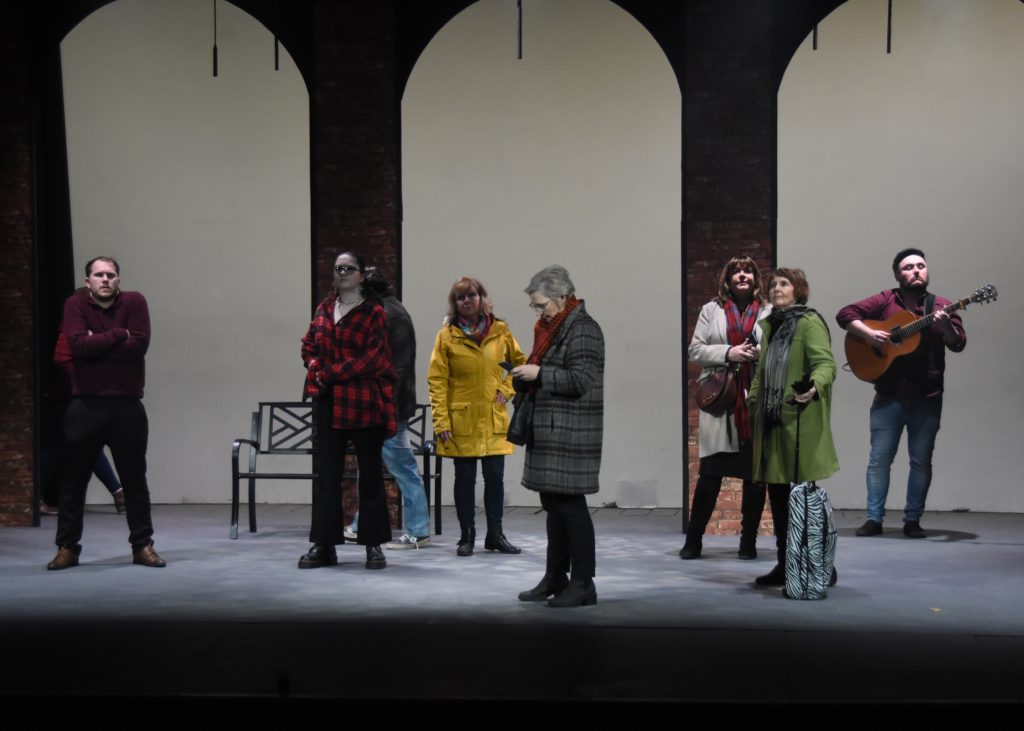
Donaghy has the funny bones and timing of a stand-up, the golden quill of a novelist, an all-too-uncommon common touch and the eye for a story and contacts’ book of a journalist. Hence he can deliver lines, deliver Addy and, in turn, Addy delivers the goods. “He’s like a Peter Sallis, like being by a warm hearth,” said Donaghy after last night’s premiere.
Donaghy is decisive too. Watching the dress rehearsal, the frontman in him told him the cast would need head microphones as well as overhead ones. He and Gemma also instinctively felt that the presentation of a succession of monologues – theatre’s most intense, concentration-demanding form – would benefit from the insertion of an interval.
He was right on both fronts, and in his wish for The Missing Peace to be the starting pistol for conversation, not the finishing line, those conversations could start all the sooner, at half-time.
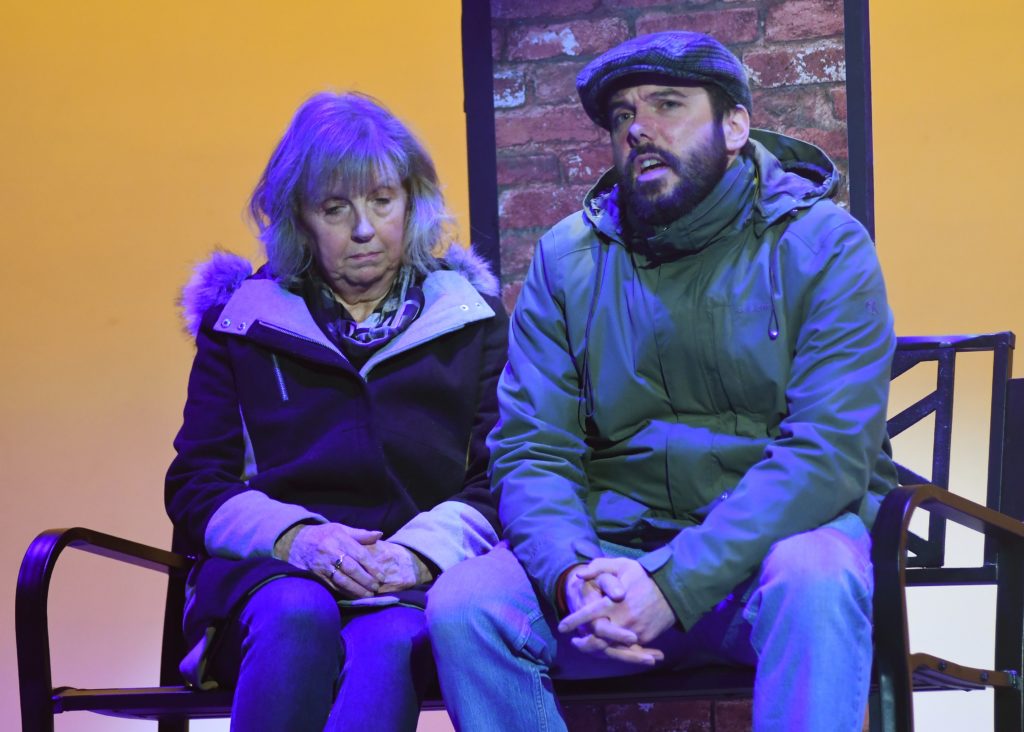
Gemma McDonald has done a tremendous job too, both in picking the monologues and their varying tones and experiences and her choice of community cast, whether young (Beth Hutchinson, Katelyn Banks, Hannah Woods), ever reliable (Mark McDonald, Mandy Newby, Graham Smith, Maggie Smales, Gemma herself); or assured in centre-stage (Lynne Edwards, Liam Godfrey, Jackie Holmes).
A series of monologues might sound repetitive, but there is nothing mono about their performances; instead they are rich in nuance, all performed with clarity and sensitivity, using the exposure of direct address to the maximum impact. Individuality and teamwork knitted together superbly, and how moving this counselling form of theatre is.
This is not stand-and-deliver theatre; instead Gemma has a painter’s eye in framing each scene, with others present on stage in many, but never distractingly so. All the while, busking guitarist Peter Hyndman links the monologues, looking heavenwards as he sings.
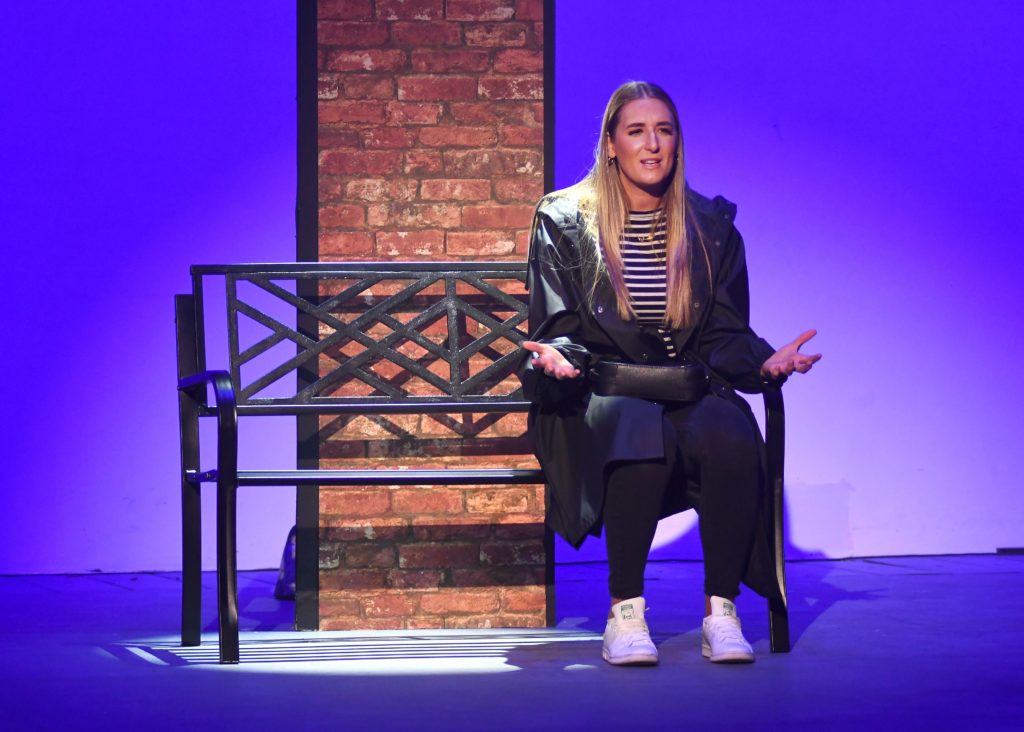
Sara Howlett excitedly talking about heaven has person after person disengaging from her on the station forecourt; Alison Taylor’s secret “other woman” at her lover’s funeral stands at the back, separate from the motionless, side-on, silhouetted mourners, as she faces the audience in a soft spotlight in a brilliant piece of choreography.
In contrast, Joseph Marucci’s devastated father is all alone in his abiding grief, conversing with his stillborn daughter, “born asleep”.
“You may cry,” wrote Donaghy in his programme notes. We did, at that moment and others too. “You may laugh,” he surmised. We did, knowingly, as Gemma McDonald and Katelyn Banks’s mum and daughter dealt with the death of the family hamster, and when Beth Hutchinson’s daughter revealed to her late dad her switch of allegiance from Manchester United to Liverpool (“Jurgen Klopp is like Fergie with better teeth,” she reasoned).
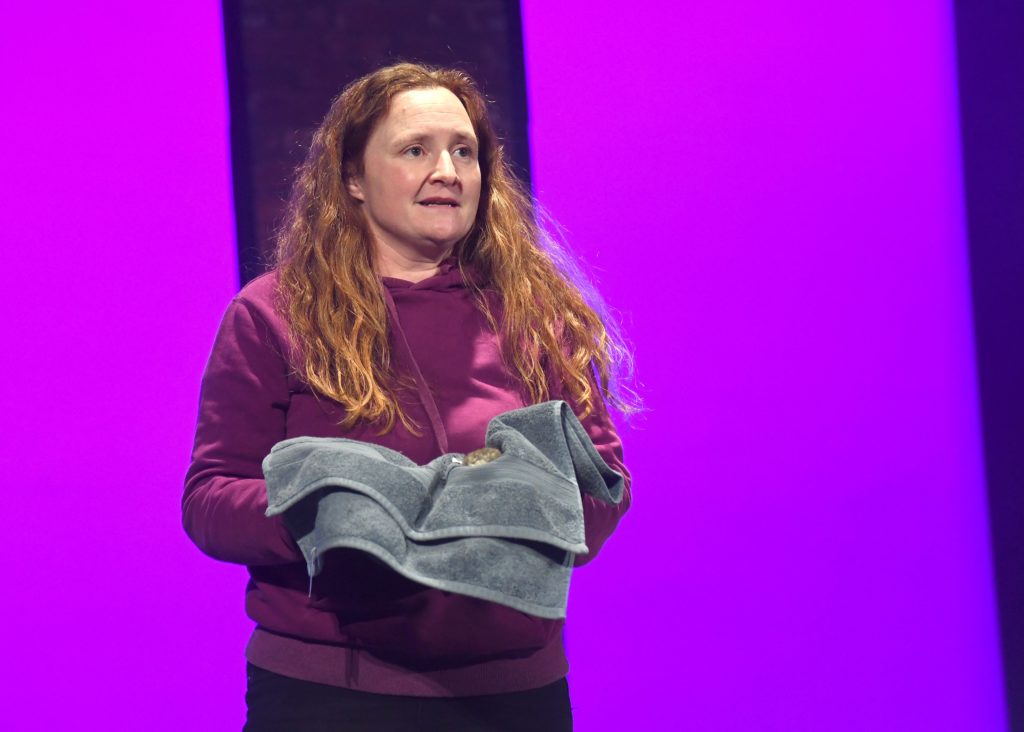
“But YOU will think,” emphasised Donaghy in capital letters. And, yes, you will think, but more importantly you will talk. Everyone was talking afterwards, opening up about their own experiences.
Just as they will after tonight and tomorrow’s performances. Talk will then turn to what happens next to The Missing Peace, which surely has an afterlife. Watch this space.
Review by Charles Hutchinson

